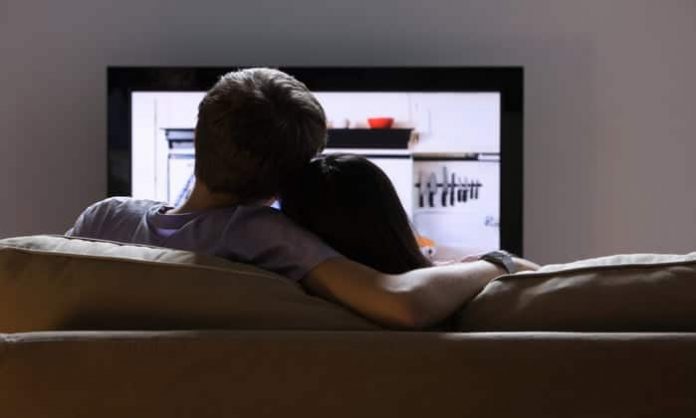Maybe “Why Less Sex?” is None of Our Business?
Everywhere you look these days, you’ll find articles about research and data showing that young people are having less sex than they used to. What’s the cause? There seem to be as many theories as there are theorists, with people blaming everything from porn and video games to young people living with their parents to an older age than in years past.
But what does the data really show? Are fewer people having sex, or are sexually active people simply having sex less often? We often focus on single people — yet the data shows married folks have experienced the biggest decline in sexual frequency.
In the midst of all this data, analysis and punditry, Calico is coming at the same questions from a different angle. Isn’t it more likely that multiple factors are in play, ‘conspiring’ together to cause the decline? On the other end of the spectrum, is it possible that the answer is “none of the above”? Beyond all that, there’s the thought that forms the title of Calico’s latest post: “Maybe the ‘Why?’ is None of Our Business?”
by Calico Rudasill, Sssh.com, Award Winning Porn Movies For Smart People

Read on…
Over the last couple years, I’ve read countless articles about data showing that young people are having sex less often these days than they once did.
There are many theories as to why this is the case, ranging from “delayed adulthood” and a decrease specifically in casual sex paired with lower marriage rates, to “digital distractions,” like video games, Netflix binging, online porn viewing and the like.
Don’t Blame it on COVID
One thing seems clear: Whatever is driving the trend of young people have less sex, it’s not something that flows primarily from the COVID-19 pandemic and related lockdowns, because the statistical trend began before the pandemic did.
According to the study referenced in the WebMD article above, “between 2007 and 2017, the number of 18- to 23-year-old Americans having casual sex declined.” Specifically, “among men, 24% said they’d hooked up in the past month, versus 38% a decade before. Among women, that figure declined from 31% to 22%.”
Because data also shows a corresponding drop in alcohol consumption, some point to that as a likely causal factor – but since young women and young men both appear to be drinking less, what accounts for the fact that the decline in sexual activity has been more pronounced among men than women?
Joseph Palamar, an associate professor of population health at NYU’s Grossman School of Medicine, said that while he’s not surprised a decline in drinking being correlated to a decline in casual sex, he also seems to pin the ‘blame’ on the ‘digital distraction’ phenomenon referenced earlier in this post.
Nowadays, Palamar said “stimulation can be achieved in a heartbeat from your device, which is right at your fingertips. Suddenly, sex might not be as interesting as a video or a game. Alcohol and other drugs may suddenly not be as interesting, either.”
I don’t know what video games these people are playing, but if it’s more interesting to them than having sex, it must be one hell of a game. Granted, I’m from a generation whose video game temptations began with Pong, but somehow I can’t imagine myself in my early 20s, blowing off a date so I could sit around my living room playing Call of Duty, or whatever game it is people are pretending to blow each other up in these days.
Are Fewer People Having Sex? Or Are Sexually Active People Just Becoming Less So?
Something that often seems to get lost in the discussion of why young people are having less sex is the question of whether the data shows that fewer young people are having sex, or if roughly the same number of young, sexually active people are having sex, but having sex less often than they used to.
Put another way (the way chosen by Dr. Peter Ueda, a researcher at the Karolinska Institute in Sweden), it is “important to distinguish between a decrease in sexual frequency among those who are sexually active and an increase in those who do not have sex at all.”
“While the mean sexual frequency among those who were sexually active may reflect their priorities and preferences,” Ueda said, “sexual inactivity may reflect an absence of sexually intimate relationships, with substantially different implications for public health and society.”
Freedom’s Just Another Word for… Having More Choices?
While it’s most likely that all the different theories offered to explain why younger people are having sex less often are contributing factors, I do have a favorite theory – one that speaks to my memory of being a young, very sexually active woman who didn’t much appreciate having my sexual preferences scrutinized, be it by people I knew, academics, or the media.
Writing for Psychology Today, Bella Depaulo suggests that the “rise of individualism means that people have more opportunities to live the lives they want, not the ones dictated by norms or pressures.”
Depaulo also notes something about the data that many other writers have not: “frequency of sex is declining most for married people, not singles.” In that case, why are we so focused on young people and a reduction in “casual sex”? If everyone is fucking less, why are we selectively going up the millennials’ collective ass with a microscope on this question?
I’m not going to call this a theory, but I do have a belief when it comes the question of why young people are having sex less often: It’s none of my goddamn business.
Out of the box porn movie choices abound at Wasteland.com – Click Here








 Erotic Cinema For Discerning Adults
Erotic Cinema For Discerning Adults Anonymous Adult Search
Anonymous Adult Search